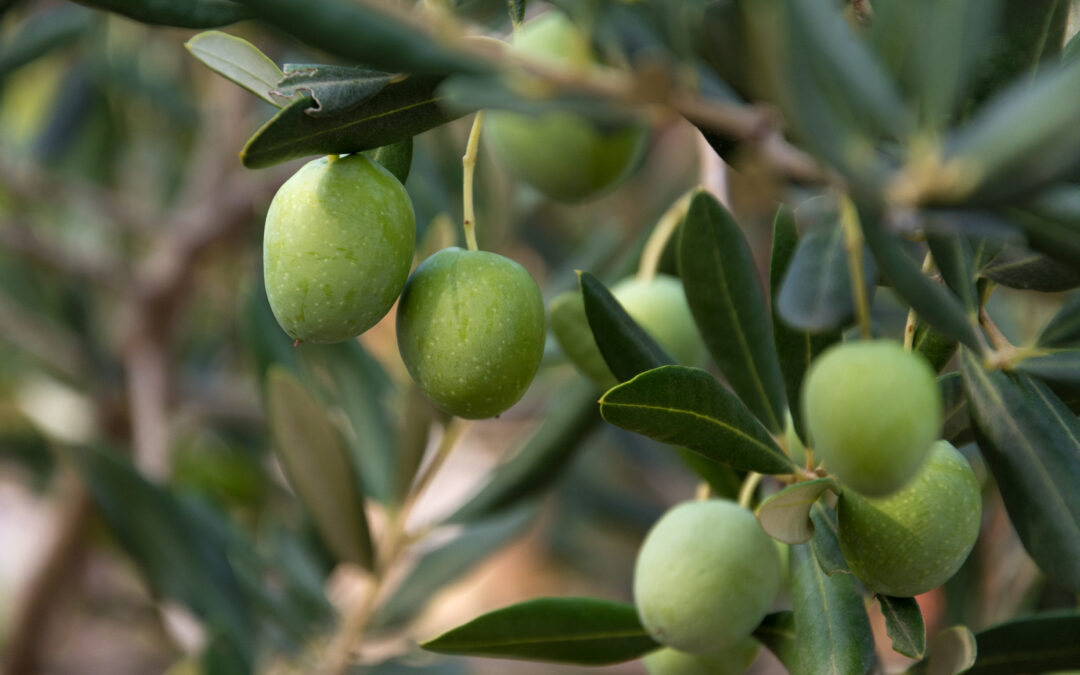Reviewed 10 Jul 2025; next review due 10 Jul 2027
If you could make just one dietary tweak that pays dividends across heart, brain, and metabolic health, the evidence points squarely at high‑polyphenol extra‑virgin olive oil (EVOO).1
Why EVOO stands out
EVOO is the cornerstone fat of the Mediterranean diet, a pattern repeatedly linked with lower cardiovascular mortality and longer life expectancy.2 Its unique cocktail of monounsaturated fat plus >30 phenolic antioxidants acts far beyond calories: it dampens oxidation, calms inflammation, and fine‑tunes lipid and glucose metabolism.
Six evidence‑backed health wins
- Heart & Longevity. Large epidemiological cohorts and randomised trials show that replacing other fats with ~2 tbsp/day EVOO lowers coronary events, improves blood pressure, and predicts fewer all‑cause deaths.34
- Healthy Lipids & Endothelium. Clinical interventions have demonstrated reductions in LDL‑cholesterol, triglycerides, and inflammatory markers within weeks of switching to polyphenol‑rich EVOO.5
- Brain Protection. Two separate randomised trials in older adults reported slower cognitive decline—and even memory gains—when diets were supplemented with high‑phenolic EVOO.67
- Type‑2 Diabetes Risk. Participants following a Mediterranean pattern emphasising EVOO cut incident diabetes by 52 % versus a low‑fat control.8
- Breast‑Cancer Defence. In high‑risk women, higher EVOO intake halved the rate of invasive breast cancer over five years.9
- Antioxidant Shield. Laboratory and human studies confirm that EVOO phenolics remain bioactive after typical home cooking, maintaining their free‑radical‑quenching capacity.10
Picking a bottle that delivers
- Look for a Certificate of Analysis to confirm high polyphenol content .
- Look for harvest date—fresher oils (<12 months) retain more phenolics.
- Choose dark glass or tin to block light degradation.
- Taste matters: bitterness and a peppery throat‑sting signal high polyphenol content.
Smart usage tips
Take a tbsp shot of EVOO with a meal, once or twice a day. Replace other oils with EVOO. Drizzle over salads, vegetables, and finished dishes. For pan‑sautéing, keep the temperature below 190 °C (374 °F); data show phenolic retention is excellent in this range.10
Regulatory stamp of approval
The European Commission permits a health claim for olive‑oil phenolics—specifically, that 5 mg of hydroxytyrosol and its derivatives per 20 g of olive oil “contribute to the protection of blood lipids from oxidative stress.”11
Bottom line
A simple switch to 1–2 tablespoons of quality EVOO daily is one of the highest‑leverage nutrition moves you can make. Your arteries, brain, and metabolic hormones will thank you—backed by decades of solid science.
References
Keys, A., Menotti, A., Karvonen, M. J., Aravanis, C., Blackburn, H., Buzina, R., et al. (1986). The diet and 15‑year death rate in the Seven Countries Study. American Journal of Epidemiology, 124(6), 903‑915. https://doi.org/10.1093/oxfordjournals.aje.a114480 (PubMed) ↩︎
Estruch, R., Ros, E., Salas‑Salvadó, J., et al.; PREDIMED Study Investigators. (2018). Primary prevention of cardiovascular disease with a Mediterranean diet supplemented with extra‑virgin olive oil or nuts. New England Journal of Medicine, 378(25), e34. https://doi.org/10.1056/NEJMoa1800389 (PubMed) ↩︎
Guasch‑Ferré, M., Li, Y., Willett, W. C., Sun, Q., Sampson, L., Salas‑Salvadó, J., et al. (2022). Consumption of olive oil and risk of total and cause‑specific mortality among U.S. adults. Journal of the American College of Cardiology, 79(2), 101‑112. https://doi.org/10.1016/j.jacc.2021.10.041 (PubMed) ↩︎
Sarapis, K., Thomas, C. J., Hoskin, J., George, E. S., Marx, W., Mayr, H. L., et al. (2020). The effect of high‑polyphenol extra virgin olive oil on blood pressure and arterial stiffness in healthy adults: A randomised, controlled, cross‑over study. Nutrients, 12(8), 2272. https://doi.org/10.3390/nu12082272 (PMC) ↩︎
Khandouzi, N., Zahedmehr, A., & Nasrollahzadeh, J. (2021). Effect of polyphenol‑rich extra‑virgin olive oil on lipid profile and inflammatory biomarkers in patients undergoing coronary angiography: A randomised, controlled trial. International Journal of Food Sciences & Nutrition, 72(4), 548‑558. https://doi.org/10.1080/09637486.2020.1841123 (PubMed) ↩︎
Valls‑Pedret, C., Sala‑Vila, A., Serra‑Mir, M., et al. (2015). Mediterranean diet and age‑related cognitive decline: A randomised clinical trial. JAMA Internal Medicine, 175(7), 1094‑1103. https://doi.org/10.1001/jamainternmed.2015.1668 (PubMed) ↩︎
Tsolaki, M., Lazarou, E., Kozori, M., et al. (2020). A randomised clinical trial of Greek high‑phenolic early‑harvest extra virgin olive oil in mild cognitive impairment: The MICOIL pilot study. Journal of Alzheimer’s Disease, 78(2), 801‑817. https://doi.org/10.3233/JAD-200405 (PubMed) ↩︎
Salas‑Salvadó, J., Bulló, M., Babio, N., et al.; PREDIMED Study Investigators. (2011). Reduction in the incidence of type 2 diabetes with the Mediterranean diet: Results of the PREDIMED‑Reus nutrition intervention randomised trial. Diabetes Care, 34(1), 14‑19. https://doi.org/10.2337/dc10-1288 (PubMed) ↩︎
Toledo, E., Salas‑Salvadó, J., Donat‑Vargas, C., et al. (2015). Mediterranean diet and invasive breast cancer risk among women at high cardiovascular risk in the PREDIMED trial: A randomised clinical trial. JAMA Internal Medicine, 175(11), 1752‑1760. https://doi.org/10.1001/jamainternmed.2015.4838 (PubMed) ↩︎
Ambra, R., Lucchetti, S., & Pastore, G. (2022). A review of the effects of olive‑oil cooking on phenolic compounds. Molecules, 27(3), 661. https://doi.org/10.3390/molecules27030661 (PMC) ↩︎
European Commission. (2012). Commission Regulation (EU) No 432/2012 of 16 May 2012 establishing a list of permitted health claims made on foods other than those referring to the reduction of disease risk and to children’s development and health. Official Journal of the European Union, L136, 1‑40. https://eur-lex.europa.eu/… ↩︎

